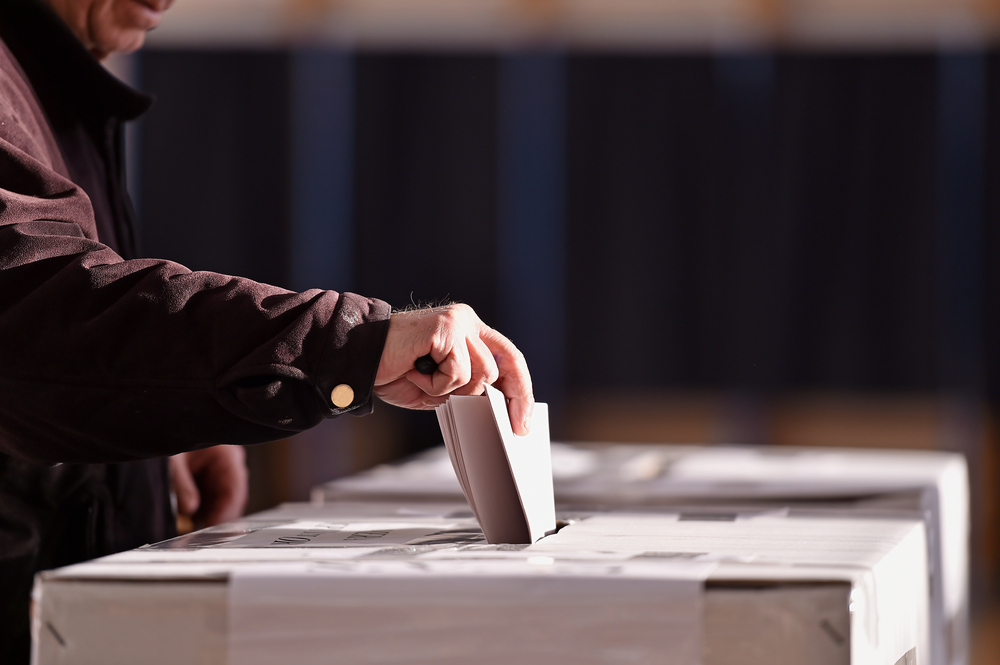The collective weight of 2020 is palpable, and many of us are exhausted by politics, polarization, and negativity in our news feeds. It can all feel overwhelming and hopeless, but I’ve recently been introduced to the idea of civic engagement as an antidote. Politics is about what divides us, but civics unifies us — it’s our privilege and obligation as citizens, all of us.
So if that’s the what and why, the next question is how. Like all habit change, breaking it down into Microsteps can help us here. I did a little research and came up with four suggestions:
1.Vote. The United States consistently ranks well below other developed democratic nations in voter participation. It is easy to take for granted, and when we consider our predecessors fought and died to give us the privilege of self-governance through representative democracy, it’s actually an awesome responsibility. If congressional approval ratings are any indicator, I imagine “what’s the point?” is a prevalent sentiment, but the system works best when we all participate. Decisions and representation become richer with input from people of all backgrounds — as a physician, I bring the perspective of healthcare. You, as a teacher, lawyer, cashier, bus driver, small business owner, barista, mail carrier, architect, construction worker bring your own unique and important perspective. This year offers unusual challenges because of the pandemic, as millions of Americans navigate voting by mail for the first time. Find out early what you need to know about voting in your state… and then tell your family and friends. You can quickly check your voter registration status and sign up for elections reminders by texting VOTER to 26797 or by visiting http://iamavoter.com
2. Encourage your employer to get involved. You might be concerned your company will shy away from anything remotely related to politics, but research from Harvard1 demonstrates that promoting civic engagement strengthens relationships with employees and consumers. My partner Rick recently became involved with Civic Alliance, a non-partisan, non-profit organization aimed at helping businesses support voter participation amongst their ranks. Examples of efforts include providing paid time-off for hourly employees to vote early or at the polls, organizing speaker series on ballot issues, and making Election Day a paid company holiday so people can vote and volunteer. Starbucks, Target, Major League Baseball, Capital One, Blue Apron, Salesforce, and H&M are just some of the companies that have made a commitment to create a culture of civics and have joined the alliance. Visit www.civicalliance.com to learn more about how your company can engage.
3. Sign up to be a poll worker. We’re facing a critical shortage of poll workers this year due to the pandemic. If you are healthy and available, why not sign up? I thought this would be great use of extra vacation time I’ve built up, and Rick and I decided to do it together. I’m excited to see the process in action! Added bonus: Evidence abounds that the benefits of service are bidirectional, offering satisfaction and happiness far beyond what we can purchase or consume. Power the Polls can connect you to opportunities to serve as an election worker at your local polling place.
4. Be curious. This is a mindset I repeat every day as part of my contemplative practice. As it relates to civic engagement, instead of getting sucked into a sound byte-driven back-and-forth on social media, how about making it a goal to have three meaningful conversations before November 3 with people whose views differ from yours? Start the discussion by asking questions. There’s often a “why” underlying opinions on immigration, health care, taxes, etc. that we can all understand and relate to. If we’re ever going to break free of this tribal culture we’ve created, it has to start with empathy, figuring out what we have in common rather than what separates us. One of my favorite authors, Brené Brown, says it well: “People are hard to hate close up. Move in. Speak truth to bullshit. Be civil. Hold hands. With strangers. Strong back. Soft front. Wild heart.” 2
Culture change is possible. Use these — or come up with your own Microsteps — and let’s start a practice of civic engagement where we all participate!
1 Gross, Sofia, and Ashley Spillane. 2019. Harvard Kennedy School | Ash Center for Democratic Governance and Innovation. “Civic Responsibility: The Power of Companies to Increase Voter Turnout”.
2 Brown, Brené. 2017. Braving the wilderness: the quest for true belonging and the courage to stand alone.


